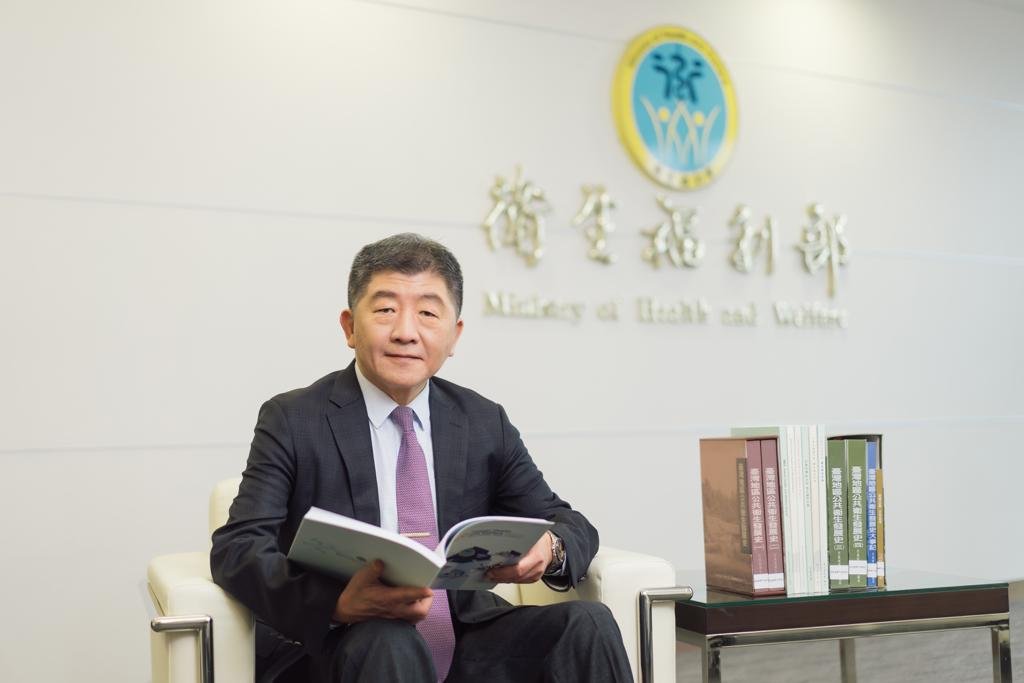During the two years of the COVID-19 pandemic, more than 510 million confirmed cases and more than 6.25 million deaths have been reported worldwide, including in Taiwan.
As all countries continue to fight the pandemic, the achievements of Taiwan, which has a population of 23.5 million, in dealing with COVID-19 have been widely recognized. As of May 10, 2022, about 390,000 confirmed cases and 931 deaths have been reported in Taiwan.
But thanks to the joint efforts of the government and the people of Taiwan, Taiwan’s economic growth rate in 2021 will reach 6.45 percent.
In that regard, Taiwan’s National Health Insurance System (NHI) which was launched in 1995 has played an important role for Taiwan’s success in fighting the pandemic.
The NHI system provides comprehensive and high-quality health services and achieves universal coverage (99.9 percent). Taiwan’s strong healthcare system and NHI have protected society and ensured social stability during the COVID-19 pandemic.
In addition, a comprehensive NHI database and other up-to-date information systems are essential in ensuring the successful application of digital technology for disease prevention. Taiwan’s healthcare system will be ranked second in the world in 2021 as reported by CEOWorld magazine
Use of Technology in Pandemic Prevention
In the early stages of the COVID-19 pandemic, in February 2020 to be exact, in order to reduce the risk of transmission to the public, the Taiwanese Government implemented an Entry Quarantine System by integrating NHI, immigration, and customs databases to enable big data analysis.
Data is introduced to the Digital Fence Tracking System which uses a positioning system on mobile phones to monitor the whereabouts of people quarantined or isolated at home.
In an effort to ensure that all residents get masks and can enjoy equitable access due to increased demand, citizens are required to use their NHI cards to purchase masks under the Name-Based Mask Distribution System to help prevent an imbalance between supply and demand.
Specifically to digitize health care services, the NHI Express application was launched. The app offers features such as vaccination appointments, personal health data, medical records, COVID-19 vaccination records and test results.
In this regard Taiwan joined the European Union (EU) Digital COVID Certificate program at the end of 2021, and allowed its citizens to apply for digital vaccination certificates and test certificates. Taiwanese citizens can enter 64 countries, including EU member states, using the certificate.
Taiwan itself has been building health information infrastructure since 2010 such as an electronic medical record exchange (EMR) system. Since May 2021, Taiwan has expanded telemedicine services at health institutions and included these services within the NHI coverage as a way to reduce the risk of cluster infection in these institutions.
Using the NHI MediCloud and EMR systems, contactless telemedicine enables medical personnel to obtain patient medical records and offer timely and comprehensive services to communities in remote areas.
Taiwan is able to handle the pandemic while allowing people to lead normal lives and achieve positive economic growth through the proper use of technology, information transparency, strict border control, and accurate screening and investigation of cases.
However, with the spread of the Omicron variant worldwide since late 2021, community transmission is also starting to increase in Taiwan. This variant appears to be much more contagious but causes only mild or no symptoms.
Implementing to block the transmission of each case would be a futile effort that would severely affect people’s livelihoods. Therefore, the Taiwan Government has chosen to eliminate severe cases, manage mild cases, minimize the overall impact, and treat moderate and severe cases since April 2022.
The new model of handling Omicron carried out by the Taiwan Government allows people to lead normal lives, while active epidemic prevention measures remain in place.
Strengthen Community Resilience
Then, with the introduction of the rapid antigen test, Taiwan has shortened the quarantine and reduced control measures and required confirmed patients to notify their close contacts to undergo home isolation and use electronic contact notifications during the process.
As demand for rapid tests has increased, the government has demanded a fixed amount and adopted a name-based rationing scheme and distributed test kits to pharmacies contracted by NHI to be purchased by the public using their NHI cards.
Taiwan has also adopted a “triage approach”, i.e. making milder COVID-19 patients receive treatment at home and ordering hospital care for patients in high-risk groups such as moderate and severe cases and the elderly.
During home care, people can access emergency medical consultations via the mobile app, while a network of pharmacists and community pharmacies is required to provide consultations and medications.
By the end of April 2022, about 80 percent of the population in Taiwan had received the main dose of the COVID-19 vaccine, while 60 percent had received the booster dose.
Taiwan Continues to Help
The world today continues to face the challenges of a pandemic, vaccine supply, and post-pandemic recovery. All countries must cooperate and prepare for a possible future pandemic.
Taiwan is a trusted partner in ensuring a successful post-pandemic recovery. Especially to overcome the pandemic, Taiwan continues to cooperate with other countries in the research and development of COVID-19 vaccines and drugs.
Taiwan has donated medical supplies, such as medical masks and medicines to various countries. This shows that Taiwan can help, and Taiwan will continue to help countries in need.
Taiwan also continues to strive to participate in the World Health Assembly (WHA) in a professional and pragmatic manner, so that it can contribute as part of global efforts to realize the vision of the World Health Organization (WHO).
We therefore urge WHO and related parties to support Taiwan’s acceptance into WHO and allow Taiwan to fully participate in various WHO meetings and activities.
Taiwan will continue to work with the rest of the world to ensure that everyone enjoys the right to health as enshrined in the WHO Constitution. In the spirit of the United Nations’ 2030 Sustainable Development Goals, no one should be left behind.
*) Dr. Shih-Chung Chen is the Minister of Health and Welfare of the Republic of China (Taiwan).









